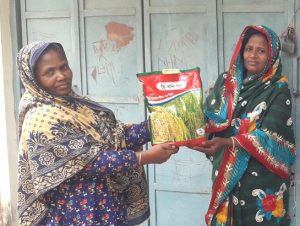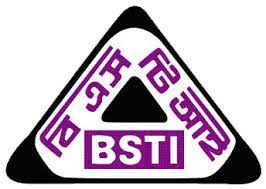Danielle Nierenberg
Greetings from Baltimore! Today, we’re highlighting ways to prevent food waste. Last week, Winnow Solutions announced a new artificial intelligence technology that will help reduce food waste significantly in commercial kitchens. It is estimated that between 5 and 15
There are many small actions that can help reduce food waste at home. Composting food scraps, making soup stock from vegetable stems and peels, planning meals before grocery shopping, and cooking creative recipes with vegetables in the back of the fridge are a few ways to avoid throwing away unspoiled food. Outside of individual households, some food businesses are now working to reduce food waste in their day-to-day operations or are diverting food from the landfill to repurpose it.
The alcohol industry, for example, produces a lot of organic and inorganic waste. Breweries like The Brussels Beer Project and Toast Ale are reducing the size of their carbon footprint by producing beer from recycled bread. These brewers take stale bread from bakeries or the ends of bread loaves to brew some of their delicious beer
We’re excited to feature 10 breweries, wineries, and distilleries who make boozy beverages while reducing food waste—including Alchemy Distillery, The Brussels Beer Project, Carrot Vodka, Catch of the Day, Dairy Distillery: Vodkow, Inman Family Wines, Misadventure Vodka, Sachi, Toast Ale, and WasteNot.
Contributing Author: Angie Cerilli
From spirits, beer, wine, and even sake, Food Tank has compiled a list of businesses that are transforming food waste into alcoholic beverages. With the use of Molecular Archaeology, a team of researchers led by
- Alchemy Distillery
Located in Humboldt County, California, Alchemy Distillery strives to reduce their impact on the environment in every area of their production system. They even donate 100 percent of the grain leftover after distillation to a pig farm, which has exceeded over 30,000 gallons to date. More recently, Alchemy Distiller took on the challenge of making whiskey from day old bagels. Alchemy reclaims roughly 60 pounds of stale bagels per week from a local bagel shop with similar views on reducing waste and sustainability. The anticipated release date for the bagel-based whiskey is sometime near the end of 2019. - The Brussels Beer Project
Did you know that people have been enjoying beer for over 7,000 years? According to the Ancient History Encyclopedia, it is believed that beer most similar to the beverage we enjoy today was first made from fermented barley bread. The Brussels Beer Project in Belgian has taken a page out of these ancient traditions and has created a craft beer from leftover stale bread. The beer is named Babylone, based on the brewing process that was traced back to the city of Babylon. - Carrot Vodka
In an attempt to reduce food waste on their farms, Gen Windley and Alice Gorman, members of Kalfresh customers focus team, came up with an idea to use carrots unfit for the supermarket to make vodka. It seems that the use of carrots to make alcohol is becoming a bit of a tradition in Gorman’s family, as her husband also used carrots to make beer, which he called “the Wabbit Saison.” The carrot-based beverages can be found in Queensland, Australia. - Catch of the Day
Catch of the Day by-product designer Björn Steinar fights food waste by rescuing fruits from dumpsters and transforming them into vodka. Located in Reykjavík, Iceland, Steinar demonstrates that you can transform various fruits into spirits without any fancy equipment, as Steinar uses a simple open-source distilling machine. The creative name refers to the flavor of vodka based on the fruit that was repurposed, ranging from blueberry, banana, strawberry, and pineapple. - Dairy Distillery: Vodkow
Based in Ontario, Canada, Dairy Distillery utilizes milk permeate, a sugar-rich by-product of cheese and yogurt production, to make a smooth spirit, which they have named Vodkow. The two founders, Omid McDonald and Neal McCarten, recognized a gap in the dairy production system and saw this as an opportunity to make use of a useful by-product. In doing so, Dairy Distillery also creates a means of cost saving to Ontario dairy farmers as the disposal of milk permeate is part of the collective milk price. - Inman Family Wines
Located in Santa Rosa, California, Inman Family Wines has a different take on closing the loop from farm to table. What they refer to as “Four-Course Compost” is the use of compost as the sole source of fertilizer for their grapes, eliminating the need for chemical inputs. The compost used at the vineyard is derived from food waste accumulated in restaurants, hotels, and residences in the San Francisco area. This is not the only eco-friendly practice followed at the winery. To name a few, the wineries’ solar-powered systems powers up to 98 percent of their electricity requirements, they repurpose all waste water to be used for vineyard irrigation, and they have even invested in lighter weight wine bottles, which require fewer inputs due to their thinner glass and have a higher content of recycled material. - Misadventure Vodka
Found in over 50 restaurants in Southern California, Misadventure Vodka follows the motto “leave no trace” and has put this into practice by redirecting food waste out of the landfill to create their product. Based in San Diego, the two founders create their craft using baked goods no longer suitable for food banks, otherwise destined for the landfill. From cake to cookies and pretty well any baked good you can think of, Misadventure Vodka uses it all. - Sachi
A research team from the National University of Singapore have come up with a way to utilize tofu whey, a by-product of tofu production, to develop the first of its kind, sake-like alcoholic beverage. With an increase in demand for plant-based proteins, such as tofu, this will be followed by an increase in the waste associated with tofu production. Not only does the repurposing of this by-product reduce food waste but it also offers an alcoholic beverage with health benefits from the tofu whey including high levels of calcium, prebiotics, and isoflavones, which have been related to improved heart health, bone health, and anti-carcinogenic properties. - Toast Ale
Toast Ale rescues day-old bread from bakeries and the heel ends of bread from sandwich factories to make their award-winning brew. To date, Toast Ale has diverted over 1 million slices of bread from the landfill. Founder of Toast Ale, Tristram Stuart, was inspired to reduce and take action on food waste after a conversation with another brewer on our list, Brussels Beer Project. Not only does the use of bread to make beer reduce food waste, it also reduces all other components involved in the process chain of beer production and bread decomposition, including the associated greenhouse gases produced from growing, malting, and transporting barley, and the methane gases produced from bread rotting in the landfill. - WasteNot
Chef Mario Batali teamed with brewer Sam Calagione to create a beer made out of food waste. Their recipe idea follows a similar concept to pruno, an alcoholic beverage that originated in prisons created by prisoners to make alcohol under the radar using any fermentable foods available. However, the ingredients Chef Batali and Mr. Calagione use are a little bit on the higher end in comparison, for example they’ve used overripe tomatoes rather than ketchup, as well as rotten grapefruit, Ugli fruit, stale bread, and Demerara sugar. The two have proven that it is possible to make a good tasting beer and reduce food waste at the same time.
(Danielle Nierenberg is President of Food Tank and an expert on sustainable agriculture and food issues. She has written extensively on gender and population, the spread of factory farming in the developing world and innovations in sustainable agriculture.)




